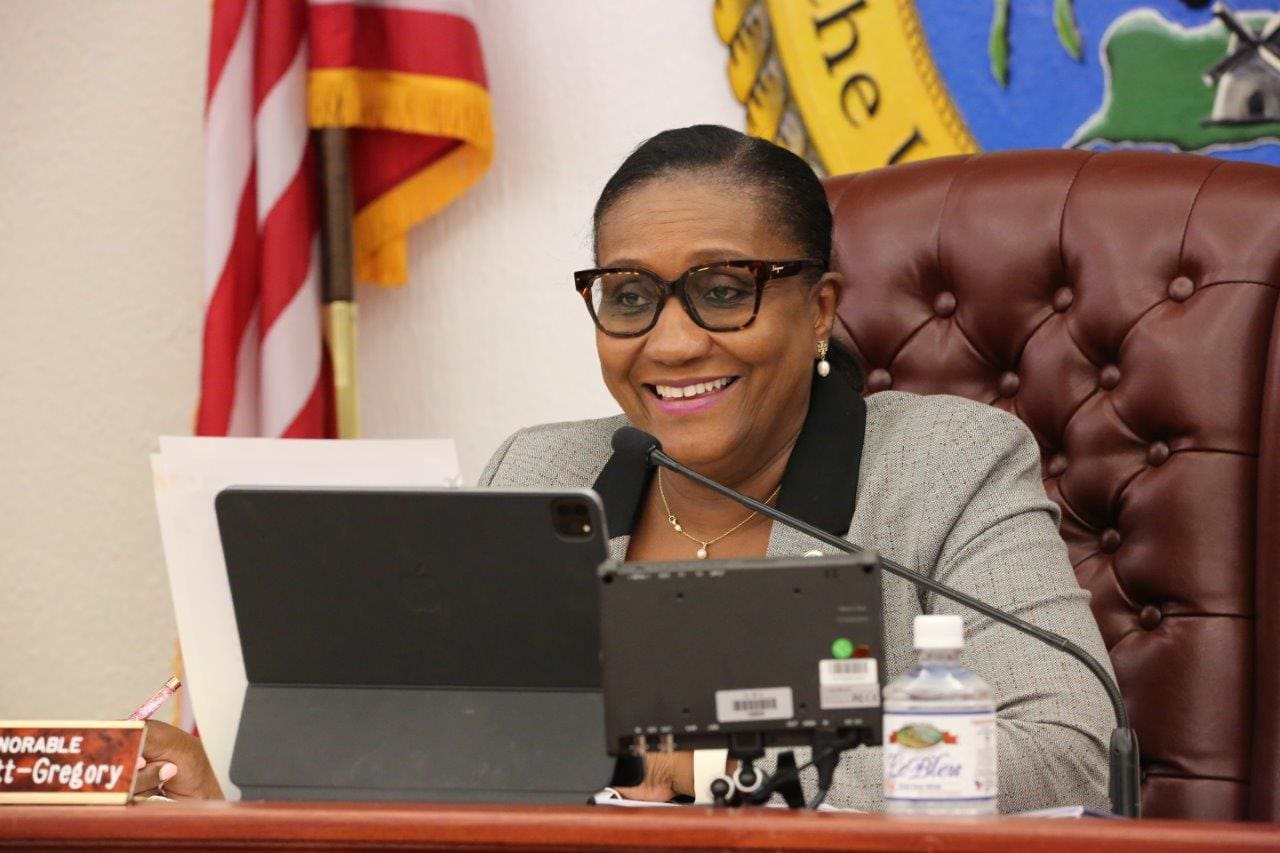
Chairwoman Donna Frett-Gregory and other lawmakers called into question the approval guideline for applicants to receive funding under the Emergency Rental Assistance Program run by the Virgin Islands Housing Finance Authority.
Tuesday’s Committee on Budget, Appropriation, and Finance hearing caused concerns regarding denied applicants and cases of back payment. Sen. Franklin D. Johnson gave a complaint scenario to testifiers of a person unemployed in 2021 who filled for ERAP but did not receive assistance. The person recently became employed in 2023 and was denied the overall filing of the funds from 2021.
“The territory initially received $21.3 million during the first round of Emergency Rental Assistance Program One. In March 2021, roughly $4 million in direct and indirect assistance to more than 700 households throughout the territory. In round two, VIHFA received $14,972,599.72, and as of June 27, has expended $8,954,389.86 with 974 collective applications processed and paid. Funds expire on September 30, 2025,” said Interim Executive Director and Chief Disaster Recovery Officer of the Virgin Islands Housing Finance Authority Dayna Clendinen.
Things such as unemployment or reductions in income and certain hardships are some qualifying factors for applicant approval. The expiration of ERAP One funding has caused challenges in certain cases with pending applicants; however, if approved, the funding may be utilized from ERAP Two. ARPA Grant Administrator Mone’t Francis-Gardner further stated that in cases like Franklin’s scenario, applicants should be able to receive back pay.
With about $9 million remaining in ERAP Two funds, Sen. Marvin Blyden asked if the authority would be able to utilize all of the remaining funds. Unfortunately, with the size of the population and a lot of the applicants in the second and/or third and final round of funding, the authority does not foresee spending the entire remaining balance with the treasury guideline of the program capping funding disbursement.
In terms of disbursement, VIHFA’s overall Fiscal Year 2024 proposed operating budget is $27,485,509, which includes $2 million from the General Fund along with supplemental revenues anticipated from stamp tax collections, land and home sales, commercial leases, mortgages, and various federal reimbursements.
In comparison to their FY 2023 budget, the authority received $5 million in stamp tax revenues and projects another $5 million in FY 2024. The law provides VIHFA to use 12 percent of that amount for administrative costs, totaling $600,000.
The budget also includes $110,000 for supplies; $847,981 for rent; and $7,868,223 for professional services, including consultants, construction management, and website management for all programs. Calculated in the budget are system upgrades of $751,078, along with $295,000 for utilities and other services and charges of $635,888.
With VIHFA oversight in construction, outstanding obligations to contractors became a brief topic. Clendinen said they “are in the neighborhood of $500,000 – $700,000” cost worth of disputes with contractors. “We can pay what we are validating, and what we can not validate it’s the back and forth with the vendor,” she said.
The authority employs 122 staff and currently has 31 vacancies – 25 positions at a cost of $1.5 million are federally reimbursed, while six are subsidized by the General Fund of $523,058. VIHFA is a non-unionized agency, and all employees are classified as exempt and/or regular employees.
The authority executed six internal promotions, onboarded 14 new hires, and processed eight separations (two retirements and six resignations). The projected expenditures for Personnel Services are a little over $15 million, with $10,655,718 for salaries, and fringe benefits of about $4.7 million, for an increase of $1.2 million over the FY 2023 budget, according to the testimony.
Sen. Ray Fonseca was not too pleased by the authority’s “a little over $15 million” in personnel services after calculating that the “little amount” was over $300,000. “That’s not a lil bit of money,” he said.
Additionally, “Over the past 15 years, VIHFA’s annual appropriation from the General Fund is $2 million, which is used solely for salaries and fringe benefits. Given the rising costs of health insurance premiums and employer retirement contributions of 23.5 percent, the $2 million today sustains salaries and fringe benefits for 21 employees,” said Clendinen.
With $4 million allocated to the VIHFA First Time Homeowner Program not being utilized due to having no applicants, senators pressed the question about the challenges.
Having federal caps, restricting guidelines from HUD, and new competition from the V.I. Economic Development Authority V.I. Slice Program, Chief Operating Officer Stephanie Berry stated that “the Slice Program is more attractive with the option of offering a grant whereas we offer a loan.” Berry also claimed that the way the legislation is written for the program also has some conflict.
Frett-Gregory, in an attempt to gain clarity on the situation, asked if the First Time Homeowners Program be moved under EDA to remove the layer of restrictions. Housing stated that with further research and internal collaboration from the department, they return to the body with more updated information.
“We also anticipate approximately $1.4 million in land and home sales; 18 commercial leases at $112,048 per annum; mortgages of $350,000 per annum; and various federal reimbursements from of a little over $23.1 million,” said the Interim Executive Director.
“This has been a marathon for this entire budget season but we have some more work to do, and I am committed to continue the work until we are finished,” said Frett-Gregory.
Sens. Donna Frett-Gregory, Novelle E. Francis Sr, Carla J. Joseph, Marvin A. Blyden, Samuel Carrion, Dwayne M. DeGraff, Ray Fonseca, Angel Bolques Jr, Kenneth L. Gittens, Marise C. James, Javan James Sr, Milton Potter, and Diane T. Capehart were in attendance at Wednesday’s hearing.


